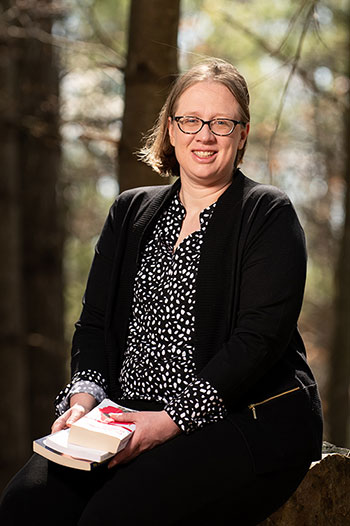Émilie Parent is a project manager at the CEGEP de Victoriaville-affiliated Centre of Social Innovation in Agriculture (CISA) and is currently working with some of the 2,400 members of the Atikamekw community of Opitciwan, located 280 kilometres west of Roberval, on the north shore of the Gouin Reservoir. Her role? Helping the community reach food self-reliance through agriculture.
In this region, produce available at the grocery store are quite expensive given the population’s income. And after enduring a long journey to reach their destination, the fruits and vegetables often are banged up and bruised, and not particularly appealing. No wonder people don’t buy them!
Agriculture is one interesting solution to this problem. But growing fruits and vegetables is not as common as hunting and gathering in the Atikamekws’ day-to-day lives. Many residents leave Opitciwan during the summer months to hunt across their vast territory.
Which means that introducing agriculture in the community is rather challenging. “Plants still need to be watered even though some people are gone in the summer time,” says Émilie Parent.
A lovely experience for many participants

Émilie Parent’s project1 with the CISA involves teaching agriculture to those who stay in the community in the summertime. Eight gardening spaces were created in the past few years, including an educational greenhouse, to help residents increase their food self-reliance.
A great number of people are enthusiastic participants in this yearly gardening experience. They grow, among other things, potatoes, cucumbers, zucchinis, lettuce, carrots and squashes, which all do very well close to the vast Gouin Reservoir.
“Outdoor activities are extremely popular among the community, particularly in areas where there isn’t that much to do,” explains the project manager. “And taking care of a living thing is very appealing for those involved.”
This project also attracts CEGEP de Victoriaville anthropology and agriculture students. These young adults are hired by the CISA and given the opportunity to live in the Atikamekw community throughout the summer. Relationships are established and they become “on-site ambassadors,” so to speak, says Émilie Parent.
Adjusting to Atikamekw reality
“We [the CISA team] are working hard to adapt our way of doing things to better suit the community and its vision, and to answer its needs,” explains the project manager. “There are cultural differences, such as the way we perceive time, organize group activities and the role work plays in our lives.”
In the summer of 2021, two anthropology students working on a new research project joined the adventure in Opitciwan. Funded by the Ministry of Education, this project aims to work on engagement methods and to incorporate the ways of Indigenous communities. The experience was a success, particularly with the community’s high school students who were invited to participate.
CISA, newly-unionized with the CSQ
The Centre of Social Innovation in Agriculture (CISA) at CEGEP de Victoriaville is the only college centre for technology transfer (CCTT) focusing its research on social issues in the agricultural sector.
In 2020, its thirty workers joined the ranks of Syndicat des professionnels du CEGEP de Victoriaville, which is affiliated with the FPPC-CSQ.[2] Émilie Parent, an executive advisor with the union, believes that being part of the union really makes a difference. We need people from our group to get involved, because our reality as researchers is different from that of other professionals. That way, we can have a proper conversation!”
1 This project with the CISA was made possible thanks to the support of Ernest Awashish, economic development officer, and Marie-Soleil Weizineau, Opitciwan community development manager.
2 Fédération du personnel professionnel des collèges.
